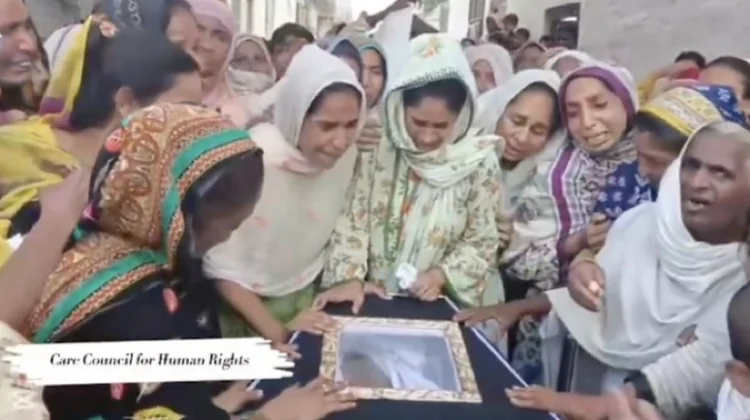
[Want even more content from FPM? Sign up for FPM+ to unlock exclusive series, virtual town-halls with our authors, and more—now for just $3.99/month. Click here to sign up.]
It was the year 2016. Nabeel Masih was just a 16-year-old cheerful, ordinary Christian boy living in a poor village in Kasur District, Pakistan. Like other boys his age, he used social media. But one day, his life suddenly took a horrifying turn. On September 18, 2016, Islamist Akhtar Ali accused Nabeel Masih, then just 16 years old, of allegedly committing blasphemy over a Facebook post that insulted the Kaaba in Mecca. According to Ali, he and some Muslim friends were browsing Facebook when they came across an image on Masih’s timeline that depicted the Kaaba with a pig placed on top of it. Ali filed a blasphemy complaint against Masih at the Phoolnagar Police Station. Police vans were immediately dispatched to Masih’s home in Dina Nath village, where he was arrested and charged under Sections 295 and 295-A of Pakistan’s Penal Code. Police claimed they removed the allegedly blasphemous image from Facebook to prevent further violence. However, the removal also made it impossible to verify whether Masih himself had uploaded the image or had simply been tagged in it. In 2018, Masih was convicted of blasphemy and sentenced to 10 years in prison. At just 18 years old, he became the youngest person in Pakistan’s history to be convicted under the blasphemy laws.
Four Years of Torment
Nabeel spent four precious years of his youth behind the bars of Lahore and Kot Lakhpat prisons in solitary confinement, under severe mental stress, and surrounded by a violent environment. These were the years when he should have been studying, playing, and laughing but instead, he lived each day in agony. His lawyer, Saad Jabar, a noted human rights advocate, fought for his case. Several local and international organizations particularly Christian Solidarity International (CSI) CSW (Christian Solidarity Worldwide), CLAAS, and ACN (Aid to the Church in Need) BACA (British asian christians Association) raised his plight, And Many More but in reality Nabeel was never given lasting protection or relief.
Bail, but the Scars of Prison Remained
In 2020, the Supreme Court granted Nabeel bail. Yet when he walked out of prison, he was neither physically healthy nor mentally at peace. The inhumane conditions of jail contaminated water, inadequate food, and constant psychological pressure had shattered his health. He had developed severe liver, kidney, and lung diseases. Doctors recommended treatment, with some even advising medical care abroad but no NGO or organization responded to his pleas.
Promises, Funding, and Silent Spectators
Countless organizations continued to raise funds in Nabeel’s name. Some showcased his case internationally and collected large donations. Yet Nabeel remained where he was abandoned, poor, sick, and hopeless in Lahore. These so-called organizations never helped evacuate innocent victims of false blasphemy accusations out of Pakistan after their release. Doing so would have cut off their own funding and donations. Instead, they deliberately kept victims inside Pakistan so they could tell donors: “We are hiding them in our safe houses.” Their livelihood thrived on exploiting the suffering of these helpless victims in the name of “protection.” Nabeel was never sent abroad for Asylum, medical care, never offered a rehabilitation program, and never provided with psychological support.
His Last Breath, July 31, 2025
Nabeel’s condition worsened with each passing day. He was admitted to hospitals several times, but it was already too late. On July 31, 2025, Nabeel Masih breathed his last. His eyes finally closed eyes that, until the very end, were still searching for justice. Nabeel Masih’s tragic death is not only an indictment of Pakistan’s cruel blasphemy laws, but also of the hypocrisy of NGOs that turned his suffering into fundraising campaigns while abandoning him to die without justice, dignity, or hope.















